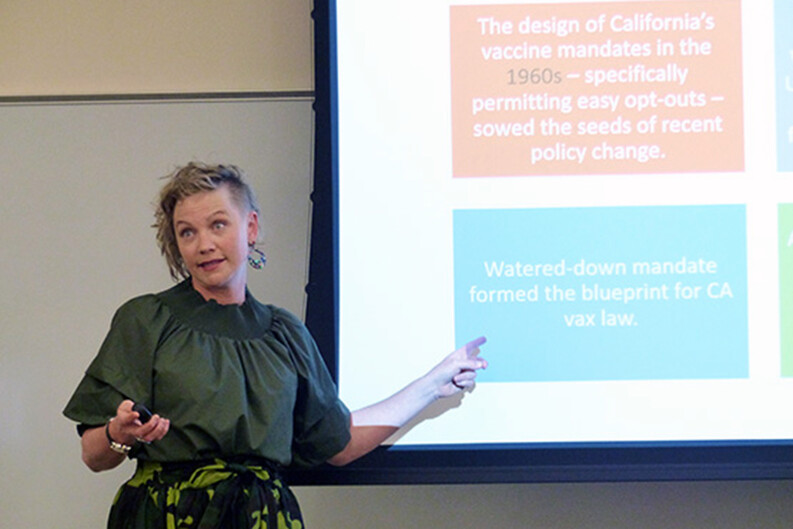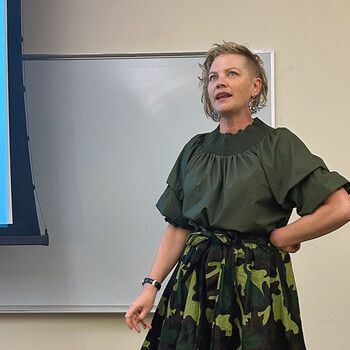Lecture Explores How, For Vaccine Hesitant, Policies May Make Politics

The Yale Institution for Social and Policy Studies4, the Yale Institute for Global Health5, the Solomon Center for Health Law and Policy6 hosted a leading public policy scholar on April 25 for a lecture exploring the relationship between vaccine policies and the politics leading to the transformation of those policies. Katie Attwell, Associate Professor of Political Science and Public Policy at the University of Western Australia, delivered the lecture, titled “Policy Makes Politics: Policy Feedback and Social Identity In California’s Vaccination Policy Changes 2012-2019.”
Attwell explored the role of social beliefs and identity on policy change over time. Beginning with the 1960s, Attwell explained, California instituted a personal belief exemption, which allowed — and, she said, even facilitated — vaccine non-compliance. This policy sparked a rise in vaccine non-compliance, which prompted a highly effective group of pro-vaccine activists to advocate for exemption’s removal. The group eventually succeeded. In 2015, California abolished the personal belief exemption for vaccinations, retaining only a medical exemption. This change resulted in more vaccinations, but only among groups whose barrier to vaccination was convenience, Attwell said. The remaining vaccine hesitant or non-conforming parents found ways to obtain a medical exemption.

Attwell explained that the 2015 change in law created a positive feedback loop, fortifying attitudes on non-vaccination as a way of living — that the change enshrined vaccination non-compliance as an identity and right for which to fight. In its own activism, this group of vaccine non-compliers co-opted rhetoric and values of other concurrent movements, she noted.
Observers often cite external factors like the 2015 Disneyland measles outbreak for the rise in vaccine hesitancy among California parents and the subsequent removal of the personal belief exemption. The rise in vaccine hesitancy among American public on the whole is also cited for California’s increase in vaccine hesitancy. Attwell, however, posited that California’s vaccination policies themselves have significantly contributed to the rise in vaccine hesitancy in the state.
Attwell pointed to other countries — Italy, France, and even her home country, Australia — for ideas on how to possibly strengthen vaccine adherence and regulation. These ideas include considering how vaccines are most frequently administered finding ways to increase adherence policies at those points, along with effective mandate policies.


